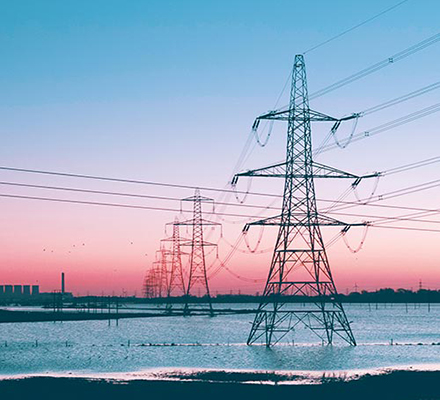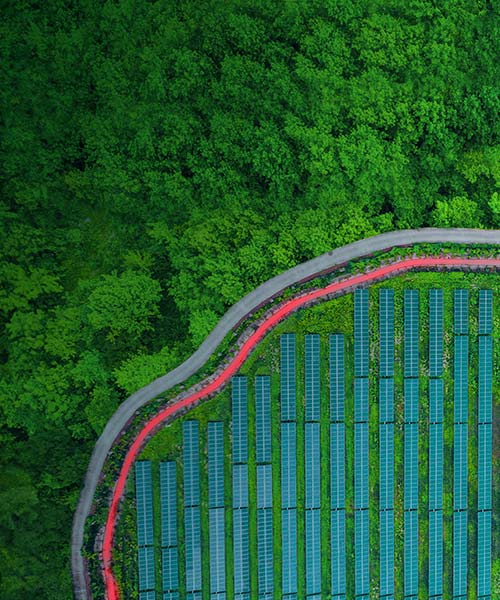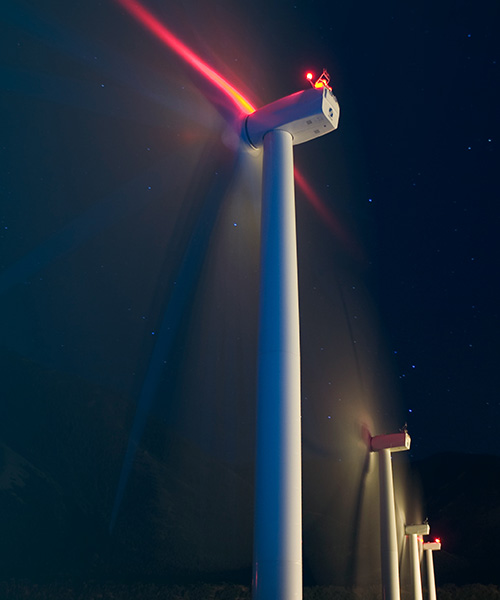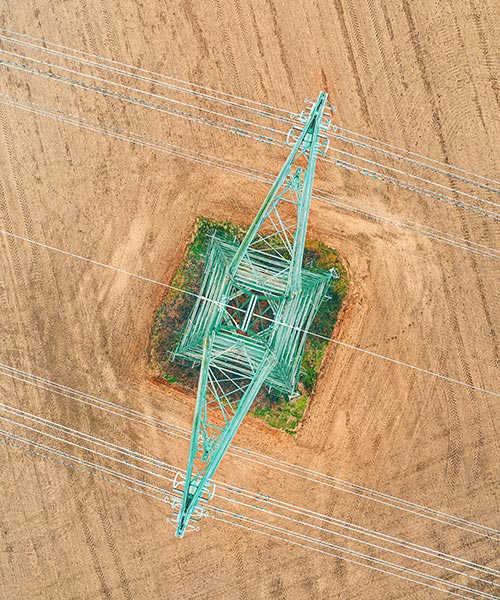
April 27, 2023 • 5 min read
Five key takeaways from our Breakfast Briefing: Net Zero by 2050? Let’s get real.
How do we mobilize change and collectively rethink the legacy of energy infrastructure, turning net zero ambitions into reality?
That’s exactly what our panel of experts talked about at our first Breakfast Briefing held at The Gherkin in London at the start of March. It was hosted by our CEO, Chris Ashton and attended by senior UK industry leaders, media and government representatives.

During the conversation, the panel explored the required reimagination of energy infrastructure delivery and the five shifts needed to trigger tangible change detailed in our ground-breaking thought leadership paper series, From Ambition to Reality.
Here’s what you need to know...
1. We must engage early and engage often
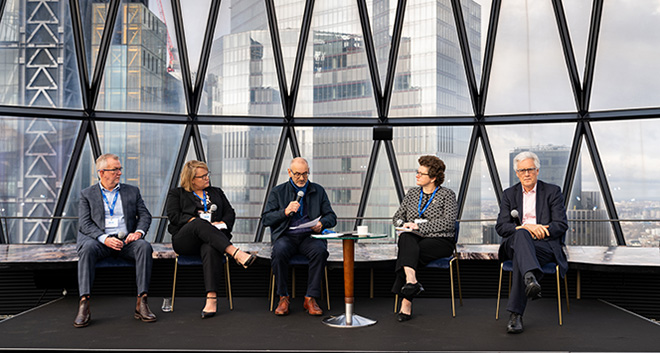
We must broaden our definition of value. Part of redefining value is how, what and when we share with communities and how we earn their consent for projects needed to drive net zero.
“I want to smash the illusion that just because a project is low carbon and it's part of the energy transition or has a benefit to mitigating climate change, that it gives that project any kind of free kick in the community in which it's located,” said Sue Brown, Executive Group Director, Sustainability & Corporate Affairs.
Some communities want investment in social infrastructure, while others want employment or an annuity for projects traversing their land. But to work harmoniously, we must engage as early as possible rather than inadequate consultations at a stage where conflict could become an issue.
“For these projects to happen, companies need to recognize the social and environmental risks involved and engage with local communities in a way that goes beyond simply managing those risks. If you don't look after the social and environmental context or seek to create value in a way that goes beyond managing risk, you're maximizing the chances of your project failing,” added Brown.
2. The speed and scale of the task should not be underestimated

The magnitude of net-zero delivery is a huge challenge. We’re all talking about it but we’re struggling to grasp the unprecedented pace it needs to happen in.
“People talk about putting a man on the moon. People talk about what we did in response to COVID. People talk about what we did in the US building ships during wartime. None of those are anywhere as significant as what we're dealing with here when it comes to the energy transition,” said Dr Chris Grieg, Senior Research Scientist at Princeton University, and co-author of the From Ambition to Reality series.
“Most of those exercises were on a five-to-10-year horizon, cost didn't matter so much, and they didn't impact the vast array of citizens and landscapes that this transition does.
“But we do already have the technologies needed – we just need to deploy them faster. We don't need more inventions, we just need to actually build the infrastructure now which is why focusing on changing our mindsets to deliver it is so vital to achieving a successful transition.”
Lord Adair Turner, Chair of the Energy Transitions Commission agreed.
“I am confident that it is possible because of the extraordinary technological changes happening worldwide. The collapsing price of solar, photovoltaic, now offshore wind, and batteries. We expect the cost of electrolyzers to make green hydrogen to come down in the same way that over the last 10 years we've seen with the price of batteries. So it's all doable.”
3. Collaboration and trust is paramount
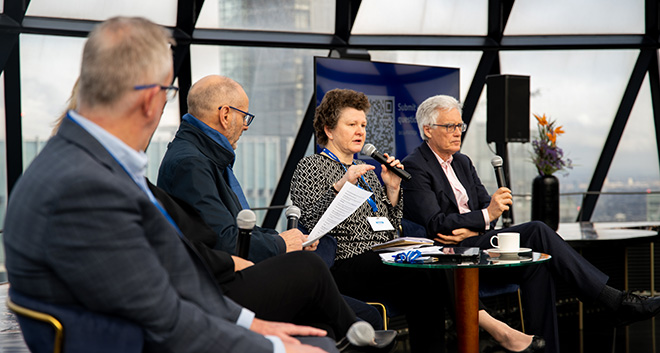
If we’re to reach global net zero, the urgency and need for partnerships and collaboration is vital.
“I think there are some interesting drivers on collaboration that we're seeing coming out of increasing regulation and disclosure that is actually making companies work with their supply chains in very different ways and get to understand them differently,” said Emma Cox, Global Climate Leader, PwC.
“A hands-on intervention where we’re forced to collaborate and share might sound difficult. But working this way, we’ll find that we can navigate antitrust rules, work out where the glitches are, and learn from each other.
“I've been impressed by the progress made so far around putting things out for the public good, and the focus on action, data and technology. Continuing this is the only way we’ll remove the barriers that hold us back from reaching our common goal.”
4. Legacy energy is the foundation for new energy projects
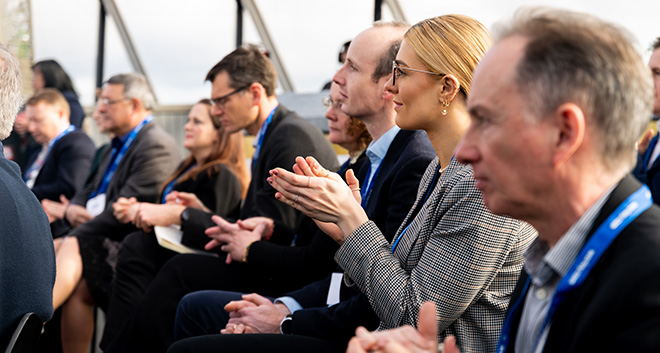
We lessen our prospects for delivering the energy transition and getting to net zero by mid-century, without the oil and gas industry playing a leadership role.
“If we're going to rely solely on the new energy companies only, I don't think we can scale fast enough,” said Chris Grieg. “The oil and gas sector has the financial capacity and expertise to deliver the scale of projects needed. And there are some key technologies like carbon capture and storage that are widely considered mandatory in the race to net zero.
“In every credible net-zero scenario, there is in fact somewhere between five and 20 billion tonnes of CO2 being injected annually into the subsurface through the second half of this century.
“If the oil and gas industry disappears, we'll have to relearn how to do projects like that. And that will take time, which is something we are short of. We need to take learnings from the past and best practices over to new energy projects.
“Furthermore, the transition is hugely capital intensive, and the oil and gas industry knows how to manage risk in capital allocation and project delivery better than any sector in the world right now. This experience is key when it comes to the speed required to deliver new energy infrastructure.”
5. We must invest in the skillsets of the future
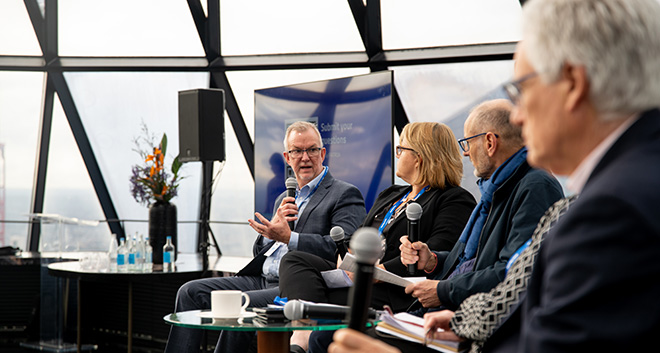
The energy transition skills gap is globally recognized. Governments need to take it seriously and be investing in and identifying the skills that are going to be required to decarbonize our energy systems.
“The laws of chemistry and physics don't change whether you're working on an offshore oil and gas platform or an offshore wind turbine. It’s not all about training from scratch. There's lots of transitioning of skills that can be done,” said Sue Brown.
“There's a need though, to be deliberate in thinking about where those skills end up and where the jobs are created. People need reassurance of what jobs are going to be available to them and that they’ll have thriving livelihoods in the communities they want to live and work in.
“Companies must work out where to put reskilling investment and define how to attract a diverse workforce, or we risk pushing critical talent away from our industry.”
Emma Cox agreed: “As an employer, we need to work with policymakers to think about where and how structures and incentives are created.To make sure that we end up with the equality of opportunity that our industry and economies so desperately need.”
To close, Lord Adair Turner concluded: “It's technologically possible to get to net zero, but it is a huge financial reallocation and physical engineering challenge. We’re still on track for 2050 but we've got to move now, at a pace that's never been seen before. And collaborate, reskill and engage like the world depends on it, because the reality is, the world really does depend on it.”

